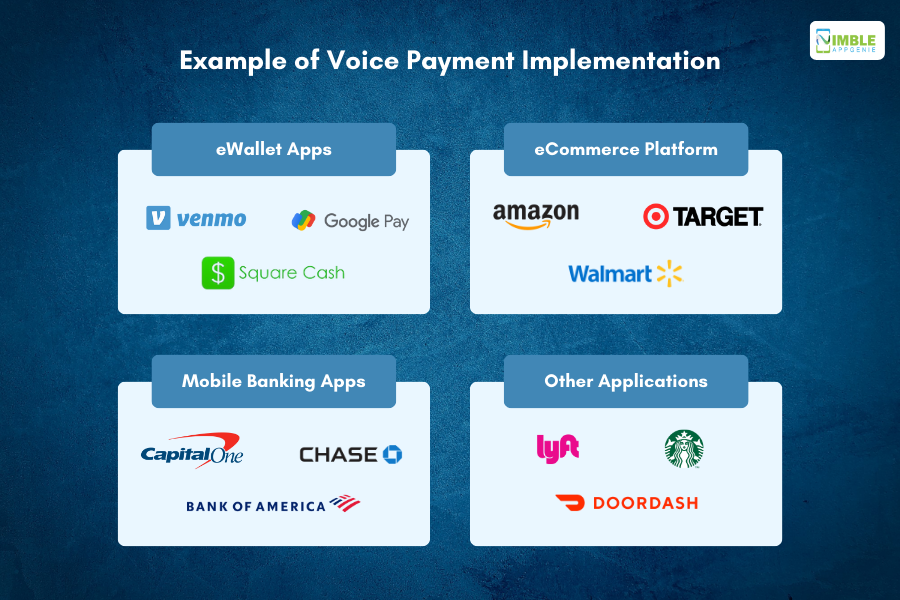The Emergence of Voice-Activated Payment Systems is revolutionizing how we conduct transactions in our daily lives. Imagine a world where you can simply speak to your device to complete a purchase without the hassle of typing in payment details. This technology is not just convenient; it reflects a significant shift towards automation and efficiency in financial transactions, making life easier for consumers and businesses alike.
As voice recognition technology advances, it’s becoming increasingly integrated into payment systems, allowing for seamless interactions. From ordering food to making online purchases, voice-activated payments are enhancing user experiences by providing speed and accessibility. This topic invites us to consider not only the technology itself but also the implications it has for security, privacy, and the future of commerce.
In today’s fast-paced world, the art of effective communication has never been more important. Whether you’re interacting with colleagues, friends, or family, the way we express ourselves can significantly impact our relationships and interactions. This article explores the key elements of effective communication, tips for improving your skills, and the benefits of becoming a more articulate communicator.First and foremost, let’s define what effective communication truly means.
At its core, effective communication is the ability to convey information in a clear, concise, and engaging manner. It involves not only the words we choose but also our tone, body language, and the context in which we communicate. When these elements align, messages are more likely to be understood and appreciated by others.One of the foundational aspects of effective communication is clarity.
To communicate clearly, you must know your audience and tailor your message accordingly. For instance, if you’re discussing a complex project with a team of engineers, using technical jargon may be appropriate. However, if you’re explaining the same project to someone without a technical background, it’s crucial to simplify your language and concepts. The goal is to ensure that your audience grasps the main points without getting lost in technical details or confusing terminology.Another critical component of effective communication is active listening.
It’s not enough to just speak; you must also be attentive to what others are saying. This means showing genuine interest in their words, asking clarifying questions, and providing feedback. Active listening not only fosters a more collaborative environment but also helps build trust and respect between individuals. When people feel heard, they are more likely to engage in meaningful discussions and contribute their ideas.Nonverbal communication is an often-overlooked aspect that plays a significant role in how messages are received.
Our body language, facial expressions, and even our posture can convey emotions and attitudes that either complement or contradict our verbal messages. For example, crossing your arms while speaking can signal defensiveness, while maintaining eye contact can demonstrate confidence and openness. Being aware of your nonverbal cues and aligning them with your spoken words can enhance your overall communication effectiveness.Moreover, the tone of your voice can dramatically affect how your message is interpreted.
A warm, enthusiastic tone can engage listeners, whereas a monotone delivery may lead to disengagement. Practicing your vocal variety—such as changing pitch, pace, and volume—can make your communication more dynamic and compelling. This is especially important in presentations or public speaking, where maintaining audience interest is crucial.To further enhance your communication skills, consider the following tips:
1. Practice Empathy
Understanding others’ perspectives can help you tailor your message for better reception. Put yourself in their shoes and consider how they might perceive your words.
2. Be Concise
While detail is important, avoid overwhelming your audience with information. Stick to the main points and elaborate as necessary.
3. Seek Feedback
Invite others to share their thoughts on your communication style. Constructive criticism can help you identify areas for improvement.
4. Stay Open-Minded
Be willing to accept differing opinions and engage in discussions without becoming defensive. This approach fosters a healthy communication environment.
5. Use Storytelling
People connect with stories. Incorporating narratives into your communication can make your message more relatable and memorable.The benefits of honing your communication skills are vast. Effective communicators often experience improved relationships, increased professional opportunities, and enhanced leadership abilities. In the workplace, clear communication can reduce misunderstandings, streamline processes, and promote teamwork. Similarly, in personal relationships, being able to express thoughts and feelings effectively can lead to deeper connections and a greater understanding between individuals.Additionally, in this digital age, the ability to communicate effectively extends to online platforms.
Whether you’re crafting an email, participating in a virtual meeting, or engaging on social media, your communication style impacts your professional image and personal brand. Being articulate in written communication is equally important, as it allows you to convey your thoughts and ideas without the benefit of vocal tone and body language.As we continue to navigate the complexities of communication in various contexts, it’s essential to remain adaptable and open to learning.
The landscape of communication is ever-evolving, influenced by cultural shifts, technological advancements, and changes in societal norms. Embracing these changes and continuously refining your skills will not only make you a better communicator but also a more effective collaborator and leader.In conclusion, effective communication is a multifaceted skill that encompasses clarity, active listening, nonverbal cues, and vocal tone. By understanding and implementing these elements, you can improve your interactions across personal and professional settings.

Remember to practice empathy, be concise, seek feedback, stay open-minded, and incorporate storytelling into your communication. The journey to becoming an articulate communicator is ongoing, but the rewards are well worth the effort. By investing in your communication skills, you’ll not only enhance your relationships but also open doors to new opportunities, ultimately enriching both your personal and professional life.
Strive to be a better communicator, and you will find that the world responds positively to your efforts.




